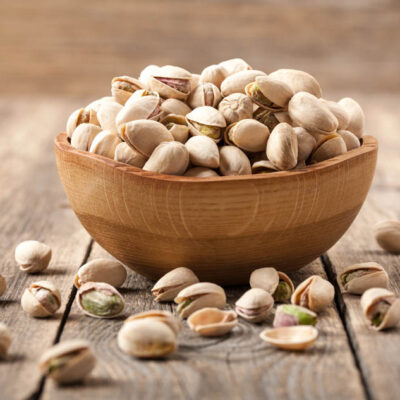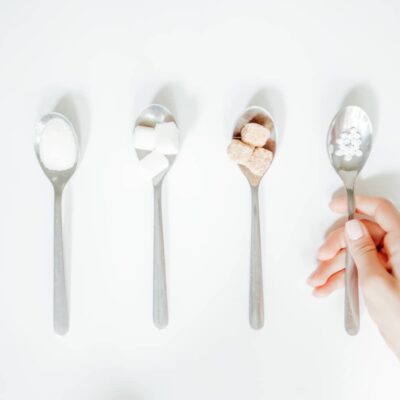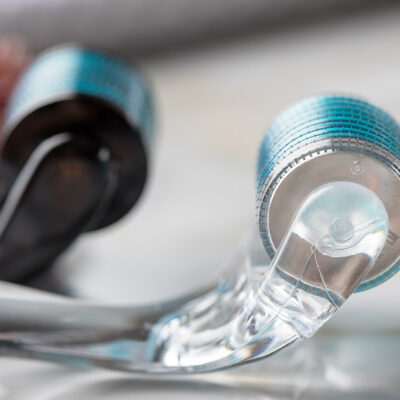Have you taken a blood cholesterol test and received a total cholesterol result of 265mg/dL? We’ll go through what this implies and how you can lower your total cholesterol level to get it back into the normal range.
Total Cholesterol: 265mg/dL

What Does a Total Cholesterol of 265mg/dL Mean?
Total cholesterol of 265mg/dL is considered high. High total cholesterol puts your body at a greater risk of developing heart disease and other cardiovascular conditions. If you have high cholesterol, you need to make changes to get your blood cholesterol back within the optimal range. Below, our table explains what the optimal range is.
| Total cholesterol levels | mg/dL |
| Normal✅ | <199 |
| Elevated ❌ | 200–239 |
| High ❌ | 240< |
A result of total cholesterol 265mg/dL means you have high total cholesterol. Total cholesterol is measured by adding together your HDL and LDL levels and 20% of your triglyceride levels.
LDL cholesterol, or low-density lipoprotein, is considered bad cholesterol, whereas HDL, or high-density lipoprotein, is considered good cholesterol.
LDL cholesterol levels should be below 100mg/dL to be considered optimal, and HDL levels should be around 60mg/dL. Triglycerides are another type of fat found in your bloodstream, and it is best to keep their levels below 150mg/dL.
How Often Is It Recommended to Measure Total Cholesterol Levels?
For healthy adults, it is recommended that you get a cholesterol test every 4–6 years1. Children should also have their cholesterol levels checked – once between the ages of 9 and 11 and again between the ages of 17 and 21.
More regular testing is frequently recommended (each 1-2 years) for people who have heart disease or a family history of high cholesterol. You may also require more regular testing if you have comorbidities, high blood pressure, are a smoker, or have any other risk factors for heart disease or other cardiovascular disorders.
Monitoring your blood cholesterol at home can help lower cholesterol and reduce your risk of heart disease. You can use a heart health app to monitor your total cholesterol level. Cardi Health is a heart health app that allows you to input your cholesterol level results to keep track of them.
The data you input into the Cardi Health app is easy to share with your doctor and can show trends in your heart health data. The app is designed to improve users’ heart health and creates an individualized plan for each person based on their answers to the opening quiz.
It is a condition-specific app, meaning that if you already have a diagnosis, it can cater your experience to your condition. The app works to help you lower your risk of developing heart disease and other conditions using changes to your lifestyle, in-depth trend analysis, and coaching.
- Personalized activity plan to suit the user
- Personalized nutrition plan
- Takes into account dietary requirements, preferences, and allergies
- Action plans generated from the tracking tool
- Real-time insights into your heart’s health performance
What Causes High Total Cholesterol?
High cholesterol is caused by several lifestyle and genetic factors:
- Your diet: A diet that is high in saturated fat, trans fat, and added sugar can cause high blood cholesterol. A diet that is low in fiber can also contribute to it.
- Your weight: Being overweight or obese puts you at an increased risk of high cholesterol and heart disease.
- The amount you exercise: It is recommended that you get at least 150 minutes of physical activity each week, and doing so can lower bad cholesterol and increase good cholesterol. If you lead a sedentary life, you’re at higher risk of high cholesterol.
- Smoking: Quitting smoking has been shown to increase HDL levels2, keeping total cholesterol under control.
- Certain medications: Some medications3 are known to cause high cholesterol. These include diuretics, corticosteroids, immunosuppressants, antiretrovirals, retinoids, oral estrogen, beta-blockers, antidepressants, and anticonvulsants.
- Age: In general, older people are more at risk of high cholesterol.
- Gender: Research suggests that postmenopausal women are at an increased risk of high cholesterol as menopause has been associated4 with a progressive increase in total cholesterol.
- Genetics: Unfortunately, high cholesterol can sometimes be down to your genetics. Familial hypercholesterolemia5 is a hereditary condition that is passed down from one or both parents. It leads to increased production of cholesterol and a higher risk of heart disease.
- High HDL level: Having elevated levels of HDL cholesterol (more than 70mg/dL) can lead to increased total cholesterol.
- Certain diseases and conditions: Kidney disease, diabetes, and HIV/AIDs all put you at risk of high cholesterol.
What Are the Symptoms of High Total Cholesterol?
There are no obvious symptoms of high total cholesterol, which is why you need to have your cholesterol level checked regularly. However, people with high total cholesterol may experience some of the following complications:
- Narrowing of the arteries, known as atherosclerosis
- Chest pain caused by narrowed coronary arteries
- Stroke or transient-ischemic attack (TIA), also known as a mini-stroke, caused by a blood clot
- Peripheral artery disease
- Heart attack
How to Reduce Total Cholesterol Levels?
Getting a result of total cholesterol of 265mg/dL can be alarming. High cholesterol puts you at an increased risk of developing heart disease and other conditions, so you’re likely looking for ways to reduce your high cholesterol.
Below, we have summarized a few of the best ways to lower cholesterol.
#1 Consume enough soluble fiber
Soluble fiber is known to reduce6 the absorption of LDL cholesterol into the bloodstream. It does so by engulfing the LDL molecules in the intestines before it has a chance to reach the blood.
By consuming more soluble fiber, you can lower cholesterol in the blood and reduce your risk of heart disease. You can find soluble fiber in many foods, including oats, peas, carrots, beans, citrus fruits, barley, and psyllium husk.
If you don’t think you’re getting enough fiber in your diet, you could also add a soluble fiber-based supplement to your diet to increase your intake, which will help in lowering cholesterol.
#2 Make changes in your diet
Diet plays a significant role in your cholesterol level and risk of heart disease. Lowering cholesterol can be done quickly by making a few changes to your current diet. To begin with, you should reduce your intake of saturated and trans fats.
Saturated fats are found in animal products such as meat and dairy, but they are also present in coconut oil and palm oil, whereas trans fats are found in fried meals, baked goods, and fast food. You may minimize your intake of both types of fat by switching to healthier oils, such as olive oil, eating more plant-based foods, such as whole grains, fruits, and vegetables, and eating less junk food and convenience foods.
You can also increase your intake of heart-healthy unsaturated fats and omega-3 fatty acids. Research suggests7 that adding omega-3 supplementation into your daily routine can help lower cholesterol, as can eating a diet rich in polyunsaturated fats8.
You can find omega-3 fatty acids and unsaturated fats in many foods, including fatty fish, flaxseed, sunflower seeds, pumpkin seeds, avocados, almonds, olives, and pecans.
It is also a good idea to avoid added sugars and other additives. Research suggests9 that increased sugar intake can lead to elevated triglyceride and cholesterol levels in the blood.
#3 Reduce bad habits
Lowering cholesterol levels takes lots of change, including giving up bad habits like smoking. Smoking has been found10 to increase bad cholesterol and decrease good cholesterol, which has a detrimental effect on your total cholesterol level.
Additionally, increased alcohol use has been associated with an increased risk of heart disease11 and has been shown to increase biomarkers of poor heart health, including cholesterol levels. Reducing your alcohol consumption may help you in lowering cholesterol levels.
#4 Don’t forget to exercise
Leading a sedentary life puts you at an increased risk of heart disease; however, adding low to moderate physical activity into your schedule has been shown12 to reduce total cholesterol levels. It is recommended that you get at least 150 minutes of physical activity each week.
#5 Take supplements and medications
There are many supplements and medications you can take to lower your cholesterol. Medicines will need to be prescribed by a doctor, and we recommend speaking with a medical professional about any supplements you plan on adding to your diet too.
Medicines and supplements that help lower high blood cholesterol are as follows:
- Statins: These cholesterol-lowering drugs are commonly used by doctors. They reduce cholesterol production in the liver to reduce high blood cholesterol.
- Ezetimibe: This cholesterol-lowering drug is often prescribed to people with a family history of high cholesterol.
- Bile acid sequestrants: These are often prescribed alongside statins and stop cholesterol-rich bile from entering the bloodstream.
- PCSK9 inhibitors: Often given to people at higher risk of heart attack, these are injected into the skin every 2–4 weeks.
- Lomitapide: This is often given to people with a family history of high cholesterol levels. It is a cholesterol-lowering drug, but it does increase the risk of liver problems, so it must be used alongside liver monitoring.
- Omega-3 supplements: Omega-3 fatty acids are known to reduce cholesterol, so for people who do not eat fish, adding a supplement can have cholesterol-lowering effects.
- Beta-glucan: A form of soluble fiber, this supplement has cholesterol-lowering effects. Other fiber supplements you could add to your diet include psyllium husk-based fiber supplements that can also reduce your cholesterol level.
- Alpha-lipoic acid (ALA): A natural antioxidant found in the body, ALA is known to lower13 LDL levels.
- Turmeric: This spice is commonly known to have many health benefits, one of which is reducing cholesterol14 in the blood. Though more research is needed on the correct dosage for cholesterol-lowering effects, taking 500mg per day is thought to have a positive impact on your health.
- Green tea extract: Rich in antioxidants, green tea is another well-known health food. There is some research15 to suggest it can have a positive impact on your cholesterol level.
Other Ways to Reduce High Total Cholesterol Levels
Further ways to reduce how much cholesterol is in your blood are as follows:
- Losing weight if you are overweight: Losing weight is an effective method of reducing high cholesterol because it reduces the amount of fat you have in your body. If you have less fat, you are less likely to have inflammation, and as long-term inflammation can lead to an increase in cholesterol, it is best to reduce inflammation in the body.
Additionally, losing weight can support better insulin sensitivity, meaning your body can better regulate lipoproteins in your blood.
- Good diabetes management: Diabetes can cause damage to the lining of your arteries, which makes cholesterol more likely to stick to them. This can cause the narrowing of the arteries, leading to blockages.
By managing your diabetes and keeping your blood sugar levels within the optimal range, you can reduce damage to your arteries and lower the risk of blockages.
- Consider adding plant sterols and stanols to your diet: These supplements are essentially the plant version of cholesterol. They have been shown to support better cholesterol management by reducing cholesterol absorption in the body.
Children should get their cholesterol checked for the first time between the ages of 9 and 11 and then again between the ages of 17 and 21. Healthy adults should get a test every 4–6 years.
Saturated fats have the most impact on cholesterol in your blood. Eating too much saturated fat can cause an increase in cholesterol, but altering your diet and reducing your consumption of saturated fats can positively affect your cholesterol levels.
- Get a Cholesterol Test. (2022). Centers for Disease Control and Prevention: https://www.cdc.gov/cholesterol/cholesterol_screening.htm
- Barbara A Forey, John S Fry, Peter N Lee, Alison J Thornton, Katharine J Coombs. (2013). The effect of quitting smoking on HDL-cholesterol – a review based on within-subject changes. A review article. BMC: https://biomarkerres.biomedcentral.com/articles/10.1186/2050-7771-1-26
- Heart UK Team. Other causes of high cholesterol. The Blog Article. Heart UK The Cholesterol Charity: https://www.heartuk.org.uk/genetic-conditions/secondary-hyperlipidaemia
- Heather Currie, Christine Williams. (2008). Menopause, Cholesterol and Cardiovascular Disease. A review article. US Cardiology Review: https://www.uscjournal.com/articles/menopause-cholesterol-and-cardiovascular-disease-0
- Centers for Disease Control and Prevention Team. (2022). An article. Familial Hypercholesterolemia: https://www.cdc.gov/genomics/disease/fh/FH.htm
- Ghada A. Soliman. (2019). Dietary Fiber, Atherosclerosis, and Cardiovascular Disease. A medical article. MDPI: https://www.mdpi.com/2072-6643/11/5/1155
- J. Chris Bradberry, PharmD and Daniel E. Hilleman, PharmD. (2013). Overview of Omega-3 Fatty Acid Therapies. Journal article. National Center for Biotechnology Information: https://www.ncbi.nlm.nih.gov/pmc/articles/PMC3875260/
- A. C. Beynen. Cholesterol-lowering action of diets rich in polyunsaturated fatty acids. SpringerLink: https://link.springer.com/chapter/10.1007/978-94-009-0731-7_24
- Quanhe Yang, PhD, Zefeng Zhang, MD, PhD, Edward W. Gregg, PhD. (2014). Added Sugar Intake and Cardiovascular Diseases Mortality Among US Adults. Medical Investigation. JAMA Network: https://jamanetwork.com/journals/jamainternalmedicine/fullarticle/1819573
- P. Herath, S. Wimalasekera, T. Amarasekara, M. Fernando, S. Turale. (2021). Effect of cigarette smoking on smoking biomarkers, blood pressure and blood lipid levels among Sri Lankan male smokers. A medical article. BMJ Journals: https://pmj.bmj.com/content/98/1165/848
- Simona Minzer, Ricardo Arturo Losno, Rosa Casas. (2020). The Effect of Alcohol on Cardiovascular Risk Factors: Is There New Information? A review article. MDPI: https://www.mdpi.com/2072-6643/12/4/912
- Mansour Saleh M. Alghamdi, Rakan I. Nazer, Maarab M. Alkorashy, Nora Alshowier, and Nichola Gale. (2018). Effectiveness of Low to Moderate Physical Exercise Training on the Level of Low-Density Lipoproteins: A Systematic Review. Hindawi: https://www.hindawi.com/journals/bmri/2018/5982980/
- S. M. Mousavi M.Sc., S. Shab-Bidar, Ph.D., H. Kord-Varkaneh, M.Sc., M. K. M.Sc., K.Djafarian, Ph.D. (2018). Effect of alpha-lipoic acid supplementation on lipid profile: A systematic review and meta-analysis of controlled clinical trials. A review article. ScienceDirect: https://linkinghub.elsevier.com/retrieve/pii/S0899900718309055
- Si Qin, Lifan Huang, Jiaojiao Gong, Shasha Shen, Juan Huang, Hong Ren, Huaidong Hu. (2017). Efficacy and safety of turmeric and curcumin in lowering blood lipid levels in patients with cardiovascular risk factors: a meta-analysis of randomized controlled trials. A review. Nutrition Journal: https://nutritionj.biomedcentral.com/articles/10.1186/s12937-017-0293-y
- Renfan Xu, Ke Yang, Sui Li, Meiyan Dai, Guangzhi Chen. (2020). Effect of green tea consumption on blood lipids: a systematic review and meta-analysis of randomized controlled trials. A review. Nutrition Journal: https://nutritionj.biomedcentral.com/articles/10.1186/s12937-020-00557-5














































 Wähle deine bevorzugte Sprache:
Wähle deine bevorzugte Sprache: 


